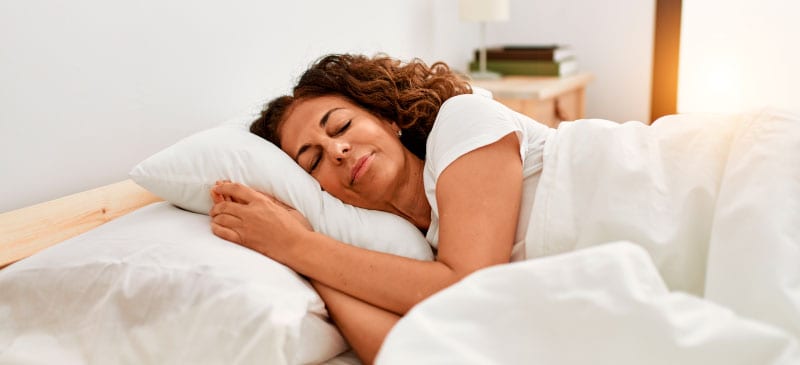Sleep Hacks for a Great Night’s Sleep
- What Is It?
- How to Practice Good Sleep Hygiene

Sleep hygiene refers to a set of practices and habits that can enhance the quality and duration of sleep and prevent insomnia. Good sleep hygiene leads to better sleep patterns, increased daytime alertness and overall enhanced well-being. We all know that sleep is crucial for overall health, which is why sleep hygiene has become one of the top wellness trends.
What exactly is sleep hygiene? As mentioned earlier, it pertains to a set of actions and habits designed to promote restful sleep. These practices aim to improve the quality and length of sleep while reducing the likelihood of sleep disturbances and disorders such as sleep deprivation. Sleep hygiene is essential for maintaining overall health and well-being since adequate and restorative sleep is vital for physical and mental health.
What Is It?
As stated above, sleep hygiene refers to a collection of practices and habits aimed at promoting good, restful sleep. These practices are meant to enhance the quality and duration of sleep, as well as lower the risk of sleep disruptions and sleep-related issues like sleep deprivation. Sleep hygiene is crucial for maintaining overall health and well-being because sufficient and restorative sleep is essential for physical and mental health.
How to Practice Good Sleep Hygiene
Here are some sleep hygiene tips and natural sleep aids to help you get a peaceful night’s sleep:
- Stick to a consistent sleep schedule: Try to go to bed and wake up at the same time every day, even on weekends. This helps regulate your body’s internal clock and promotes better sleep.
- Create a bedtime routine: Develop a relaxing pre-sleep routine to signal your body that it’s time to unwind. This may include activities like reading a book, taking a warm bath or practicing relaxation techniques.
- Make your sleep environment comfortable: Ensure your bedroom is cool, dark and quiet. Consider using blackout curtains, earplugs or a white noise machine to block out any disruptive elements.
- Limit exposure to screens before bedtime: The blue light emitted by screens can interfere with your sleep. Avoid using electronic devices like smartphones, tablets and computers at least an hour before bedtime.
- Watch what you eat and drink: Avoid large meals, caffeine and alcohol close to bedtime. These substances can disrupt your sleep patterns and cause discomfort.
- Get regular exercise: Engaging in regular physical activity during the day can promote better sleep. However, try to avoid intense exercise close to bedtime, as it may make it difficult to fall asleep.
- Limit daytime naps: While short power naps can be beneficial, long or irregular daytime naps may interfere with your nighttime sleep.
- Manage stress: High levels of stress and anxiety can disrupt sleep. Practice relaxation techniques, such as meditation, deep breathing or yoga, to help reduce stress before bedtime.
- Maintain a comfortable sleep environment: Invest in a comfortable mattress and pillows that support your sleeping posture. This can prevent discomfort and improve the quality of your sleep.
- Avoid clock-watching: If you have trouble sleeping, constantly checking the time can add to your stress. Turn your clock away from view to prevent this habit.
- Seek natural light exposure during the day: Exposure to natural light during the day can help regulate your body’s sleep-wake cycle. Spend time outdoors, or keep your curtains open to get some daylight.
- Limit liquids before bedtime: Reducing your liquid intake before going to bed can help minimize nighttime awakenings to use the bathroom.
Remember that everyone’s sleep needs and preferences can vary. It’s crucial to find a sleep hygiene routine that works best for you.
If you consistently have trouble sleeping despite practicing good sleep hygiene, consider consulting a healthcare professional to rule out any underlying sleep disorders or health issues.





